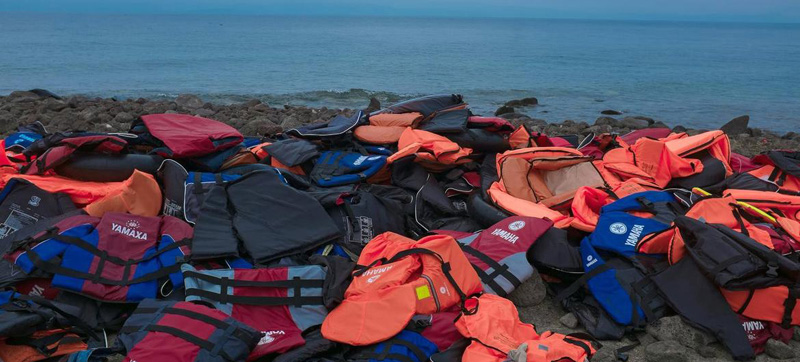 Migrants
Migrants IOM says nearly 100 people died or disappeared crossing Central and Eastern Mediterranean so far this year
Nearly 100 people have died or disappeared crossing the Central and Eastern Mediterranean so far this year – more than twice the number for the same period in 2023, the deadliest year for migrants at sea in Europe since 2016, the International Organization for Migration (IOM) said on Monday.
IOM underscored the need for regular migration pathways at a one-day summit in Rome hosted by Italy to boost development in Africa and curb migration flows.
The A Bridge for Common Life conference represented a critical opportunity to examine “unified and sustainable mechanisms to stop further needless loss of human life on treacherous routes,” said Amy Pope, the agency’s Director General, who was at the summit.
‘A stark reminder’
“Even one death is one too many,” she added, calling the latest numbers “a stark reminder that a comprehensive approach that includes safe and regular pathways – a key strategic pillar for IOM – is the only solution that will benefit migrants and States alike.”
Italy is working to strengthen its role as a bridge between Europe and Africa through a model of cooperation, development and equal partnership, IOM said, and the summit is taking place at a time when the number of people presumed to be dead or missing at sea is rising.
Missing and presumed dead
Three vessels coming from Libya, Lebanon, and Tunisia within the last six weeks carrying 158 people are unaccounted for, though IOM has recorded 73 people from these “invisible” shipwrecks as missing and presumed dead.
Last Wednesday, authorities rescued a group of 62 migrants off Cape Greco in southeastern Cyprus who had left Lebanon on 18 January. Most are hospitalized and described as severely ill, with several children in a critical condition, one of whom has since died.
Additionally, seven bodies that came ashore in Antalya, Türkiye, in recent days are believed to belong to a group of 85 migrants missing since they set off from Lebanon on 11 December.
The annual number of migrant deaths and disappearances in all the Mediterranean jumped from 2,048 in 2021, to 2,411 in 2022, and to 3,041 by the end of last year, according to IOM’s Missing Migrants Project database.
Invest in sustainable development
More than 20 leaders from Africa and the European Union, as well as representatives from UN agencies, the World Bank, and other organizations, attended the conference in the Italian capital.
Delivering remarks, UN Deputy Secretary-General Amina Mohammed called for supporting Africa’s progress by scaling up investment to achieve the Sustainable Development Goals (SDGs), which are woefully off-track as the 2030 deadline looms.
She said this includes endorsing the $500 billion annual SDG stimulus plan put forward by the UN Secretary-General.
Reform financial system
“Accelerating sustainable development across Africa relies on a surge in private investment. The international financial institutions play a critical role in making that a reality, as does the private sector,” she added.
Mohammed also stressed the need to “refresh” international financial institutions, which were established nearly 80 years ago, so that they are fit for today.
“African countries are not represented appropriately. And the institutions are largely insufficiently responsive to their needs. It is high time to make the change needed,” she said.
“We also need new frameworks to address new technologies, and to help release their potential to accelerate progress toward the SDGs.”
Support Our Journalism
We cannot do without you.. your contribution supports unbiased journalism
IBNS is not driven by any ism- not wokeism, not racism, not skewed secularism, not hyper right-wing or left liberal ideals, nor by any hardline religious beliefs or hyper nationalism. We want to serve you good old objective news, as they are. We do not judge or preach. We let people decide for themselves. We only try to present factual and well-sourced news.







